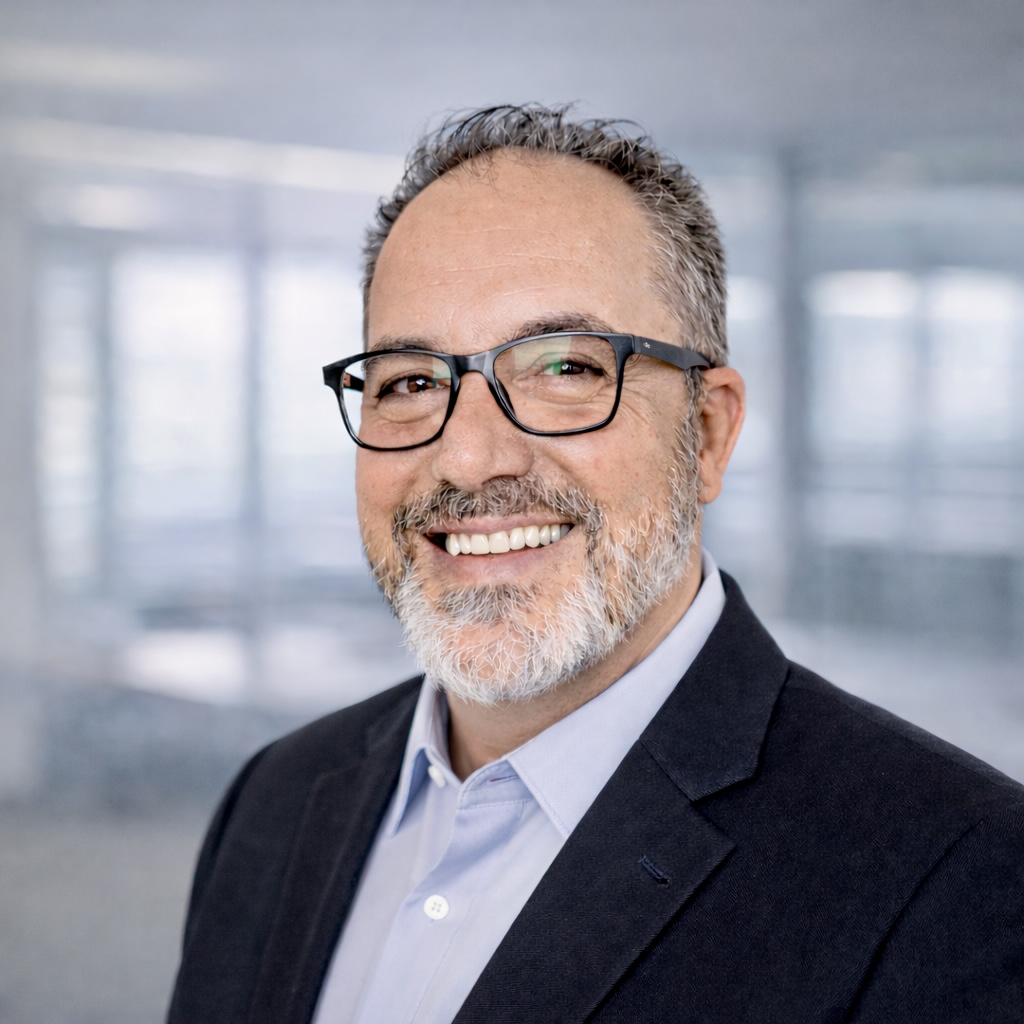Rethinking the Future of Work: What Generative AI Means for People, Purpose, and Progress

A recent McKinsey report estimates that generative AI could add up to 4.4 trillion dollars annually to the global economy. But for leaders, the real question isn’t about how much AI can produce. It’s about how it will reshape people, purpose, and the very design of work.
On The Bliss Business Podcast, Joseph Fuller, Professor of Management Practice at the Harvard Business School, joined hosts Stephen Sakach, Mike Liwski, and Tullio Siragusa to explore how AI is redefining the workplace. As the co-lead of the Managing the Future of Work Project and founder of Monitor Group (now Monitor Deloitte), Professor Fuller has spent decades studying how demographic shifts, technology, and cultural change intersect to shape the future of organizations.
The AI Acceleration Gap
Half of all Americans already use AI, but mostly outside of work. Professor Fuller calls this the “science project effect” people experimenting at home while their companies lag behind. Many organizations are adopting AI more slowly than expected, even though the technology itself is improving faster than anticipated.
This gap highlights a core challenge: simply bolting AI onto existing systems doesn’t work. “You have to rethink the way you’re doing things and reorganize the process to maximize the AI,” Fuller explained. “You can’t just add it on top.” The implication is clear. Success with AI is not just about software, it’s about systems design, culture, and the courage to reimagine how work gets done.
The Next Productivity Revolution
AI, Fuller argues, is the most transformative technology for organizations since electricity. It promises to make work more productive, but it also requires a new kind of workforce readiness. With the U.S. facing zero population growth and low workforce participation, productivity growth will be essential to sustain economic progress.
That means AI’s role is not just to replace tasks but to amplify human capability. By automating statistical analysis, data management, and repetitive tasks, AI can free people to do what humans do best: think critically, collaborate creatively, and lead empathetically.
Fuller believes this could make work more inclusive. “If AI handles the technical side, it widens the pool of qualified candidates,” he said. “It helps people without traditional credentials demonstrate value in new ways.”
The Organizational Challenge: From Control to Collaboration
While AI has the potential to democratize knowledge, many organizations risk using it to reinforce old hierarchies. Tullio Siragusa raised a key concern: could AI unintentionally deepen command-and-control structures instead of enabling autonomy and empowerment?
Fuller’s answer was clear: “There’s no reason it shouldn’t be a major boon to both.” He pointed out that fear and misunderstanding often drive corporate hesitation. Leaders worry about data privacy, intellectual property, and risk, but this caution slows learning and innovation.
AI, when used well, can flatten hierarchies by giving every employee access to insight and creativity once reserved for specialists. It can also make decision-making more dynamic, improve communication, and even coach employees in real time with near-human accuracy.
The question isn’t whether AI will change organizations. It’s whether leaders will allow it to change them for the better.
The Data Problem No One Talks About
When it comes to failed AI initiatives, Professor Fuller doesn’t mince words. “Eighty percent of AI experiments fail—and that’s actually a good number,” he said. “We’ve never done this before.” The main culprit isn’t the technology itself but the data feeding it.
Fuller describes corporate data systems as “polluted lakes” filled with inconsistent, poorly tagged information drawn from incompatible systems. “Some pipes come from beautiful freshwater springs,” he explained. “Others come straight from sewage plants.” Until data quality improves, AI outcomes will remain unreliable.
Another issue: lack of training. Many employees running AI experiments haven’t been properly educated in how to use it. Combine that with limited vendor support and you get a pattern of disappointment. But Fuller sees this as a temporary phase, much like the early days of the internet. “Every major technology shift starts with messy experiments,” he said. “What matters is that we keep learning.”
Reimagining Workforce Access
One of Fuller’s most compelling insights is how AI could finally break down degree inflation. For decades, companies have relied on proxies, like college credentials or years of experience, to filter talent. But these filters often exclude capable candidates with nontraditional backgrounds.
AI-driven assessment tools can change that by evaluating real skills and performance data rather than assumptions. “Recruiting has always been a relative process,” Fuller noted. “It’s not about whether someone is qualified, but who seems like the best choice. AI can help make those choices more objective, if we train it right.”
He warns, however, that bias is still possible. “AI will reflect the data it’s trained on,” he said. “So if the data is biased, the results will be too.” The solution isn’t to avoid AI but to use it consciously, aligning its outcomes with organizational purpose and human values.
Purpose as the Anchor in an AI World
As the conversation turned to purpose, Fuller reframed the discussion: “You have to be very cognizant of your purpose as you deploy AI.” Organizations must ensure that technology decisions align with their core values, not just profit motives. He used an example from the insurance industry, where AI might recommend low settlement offers for claimants, as a warning. “AI doesn’t get paid for nuance,” he said. “It follows the data, not the ethics.”
Empowering employees to act on purpose-driven principles becomes essential. When people understand that the company stands for something more than efficiency, they are more motivated, more innovative, and more loyal. “Purpose keeps culture human,” Fuller explained. “And that’s what makes AI sustainable.”
The Human Edge: Skills That Can’t Be Automated
For younger professionals entering the workforce, Fuller’s advice was simple: focus on what AI cannot do. Social and emotional intelligence—skills like empathy, communication, and judgment, will only grow in value.
He coined a new term for the future of human work: context engineering. Unlike prompt engineering, which focuses on inputs, context engineering is about understanding the broader environment in which work happens—customers, culture, systems, and ethics. “Context engineers will be the ones who train AI well,” he said. “They’ll know what good looks like and why it matters.”
The Role of Love in Leadership
When asked what role love plays in business, Fuller reflected on his experience as a leader, teammate, and mentor. Love, he said, is about caring deeply for outcomes, for people, and for the shared mission. It’s the difference between treating colleagues as partners versus counterparts. “That capacity to empathize and see the best in others,” he said, “is integral to high-performing teams.”
In his view, love is not sentimental, it’s strategic. It builds trust, fosters collaboration, and sustains performance long after the novelty of technology fades.
Key Takeaways
• AI is the most transformative technology since electricity, but its success depends on human systems and data integrity.
• Emotional intelligence and social skills will define the next era of leadership.
• Purpose alignment ensures AI enhances rather than erodes culture.
• Context engineering is the future of human work in an AI-driven world.
• Love and empathy remain the most powerful technologies of all.
Final Thoughts
Professor Joseph Fuller reminds us that the future of work is not about replacing people with machines, but about redesigning work so people can thrive alongside them. Generative AI may change everything we do, but it cannot replace who we are. The organizations that will lead the next era are those that treat technology as a partner in human progress, not a substitute for it.
Check out our full conversation with Professor Joseph Fuller on The Bliss Business Podcast.



